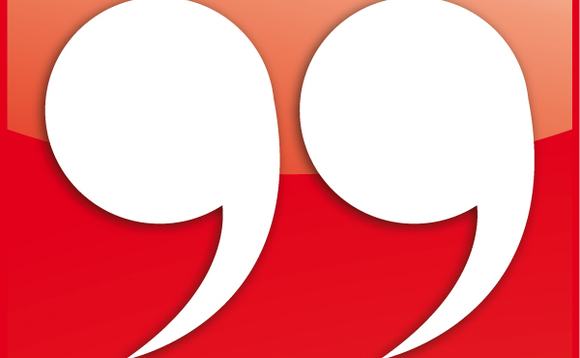
Listed FOF coup: Mantra seeks Alpha

The latest bout of shareholder activism involves the well known Guy Wyser-Pratte and an attempt to dethrone Alpha Associates as manager of listed fund of funds Private Equity Holding.
Mantra Investissement SCA, an investment company, is acting in concert with Wyser-Pratte and together they own roughly 5% of Swiss listed fund of funds Private Equity Holding (PEH) AG. They have proposed new Board members to come in and cease new investments (since then cash would be pumped into existing investments, which should boost share prices) and implement a cost-cutting plan. The AGM is scheduled for 14 June 2011.
In a nutshell, Mantra claims that Alpha is overcompensated for management of the fund, and under-incentivised to maximise shareholder value. Mantra claims that Alpha carry a high management and administrative fee of 1.8% annually and a hurdle rate of just 6% (7-8% being more standard). These terms saw Alpha earn more than €10m in performance fees since 2004, and Mantra claim a more standard hurdle would have meant zero performance fees. They further claim that the method of calculation (fees indexed on NAV in euros even though investors hold shares in Swiss Francs) led to gains of €4m between 2007 and 2010, even as the share price dropped by 8% in the same period.
Alpha denies the claims of high fees and low hurdle rates: "The calculation of performance fees is an audit point and we disagree with the allegation of fees not being in accordance with best practice," says Peter Wolfers of Alpha. "The NAV performance of PEH was significantly above the hurdle rate and with this, a higher hurdle of 7% or 8% would only have had a timing effect on the total amount of performance fees paid."
A report out by RBS this week also casts doubt on the integrity of PEH's structure. It cites a deeper-than-normal discount to NAV for the ailing fund. The NAV declined by 11.5% in SFr terms last year, well behind the average of 9.3%. The price per share went up just 7.4%, against 39% for other listed fund of funds managers. RBS' report concludes: "Given (PEH) has long struggled to compete for investor attention and in view of the ongoing supply/demand imbalance in the multi-manager sector, a restructuring or realisation plan would, in our view, be welcome, and should contribute to further narrowing of the discount to NAV." Peter Wolfer's response to these numbers is: "RBS is comparing apples with oranges. Most of PEH's peers present their results in USD. During the financial year 2010/11, PEH's NAV per share increased 10.4% in USD and the share price advanced 47.4% (in USD, including the September 2010 distribution)".
Ouch. But the current figures hide the full story, which is one of improvement. For a start, the discount to NAV was a staggering 80% on 31 March 2009. Two years later, this dropped to 36%. It is now below 30%, which is roughly in line with other multi-asset managers. Says Wolfers: "PEH's Board of Directors and Alpha are fully committed to reduce the discount further and then keep it as constant as possible."
Alpha is taking steps to further align interests. Says Wolfers: "As from April 1, 2012, a portion of the management fee will be linked to the development of the share price. This provides an additional incentive for the manager to support the Board of Director's objective to narrow the discount between the share price and the NAV."
Alpha is also averse to ceasing new investing activity: "If PEH were to stop making new investments, this would increase the portfolio's risk profile (lack of vintage year diversification; concentration risk increases), jeopardise the company's access to top managers and eliminate any potential for future growth. The Board of Directors decided that a continuation of PEH's investment activity with a focus on top managers is an important element of the company's growth strategy. Consequently, PEH has followed a highly selective approach to investing since 2007, and the return contribution by these more recent investments is significant."
A point worth bearing in mind is that PEH has been a ‘problem child' for its owners following the bursting of the dot.com bubble. It was
launched by Bank Vontobel in 1997 but by 2001, cash-flow issues saw Swiss Life Private Equity Partners take over. Just two years later, further concerns over liquidity saw a partial sale of the portfolio to Credit Suisse. Alpha restructured PEH in 2003 and has managed the portfolio since 2004.
Consolidation of the fund of funds industry is heating up, with Eurazeo announcing last month an agreement to buy OFI Private Equity Capital in a share swap, acquiring a substantial portfolio of SMEs and an experienced management team. The news of Eurazeo's expansion came as HarbourVest made a public offer to buy Switzerland-based Absolute Private Equity, in a deal worth over $750m. The acquisition is to be made with capital from HarbourVest's $2.9bn secondary fund, Dover Street VII LP.
Latest News
Stonehage Fleming raises USD 130m for largest fund to date, eyes 2024 programme
Sponsor acquired the public software group in July 2017 via the same-year vintage Partners Group Global Value 2017
Stonehage Fleming raises USD 130m for largest fund to date, eyes 2024 programme
Czech Republic-headquartered family office is targeting DACH and CEE region deals
Stonehage Fleming raises USD 130m for largest fund to date, eyes 2024 programme
Ex-Rocket Internet leader Bettina Curtze joins Swiss VC firm as partner and CFO
Stonehage Fleming raises USD 130m for largest fund to date, eyes 2024 programme
Estonia-registered VC could bolster LP base with fresh capital from funds-of-funds or pension funds








